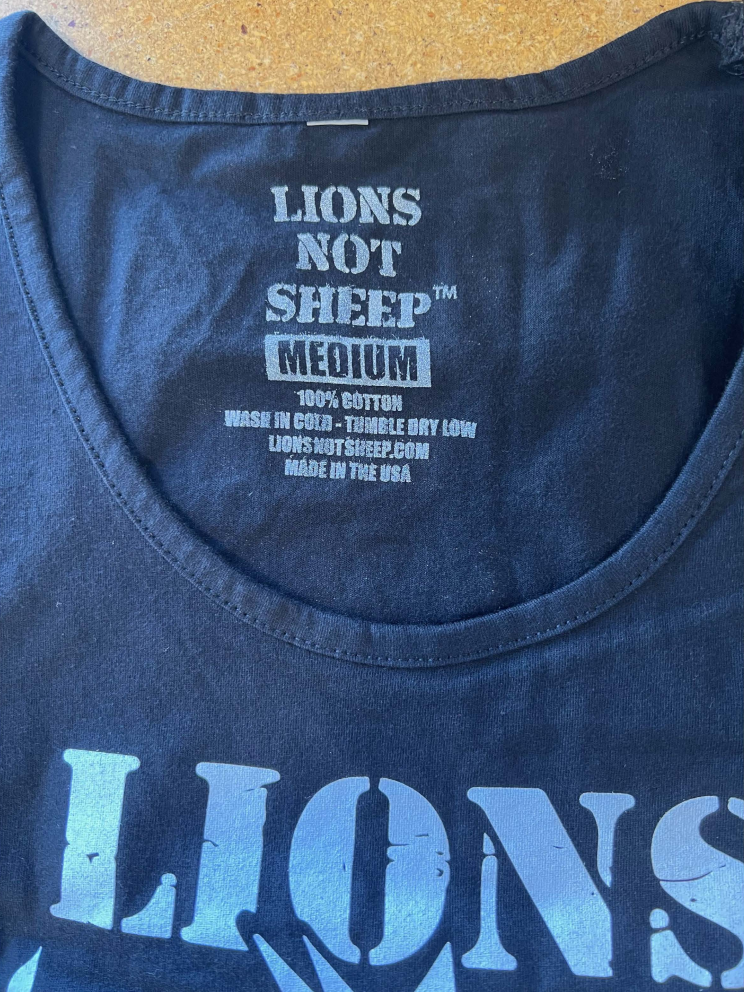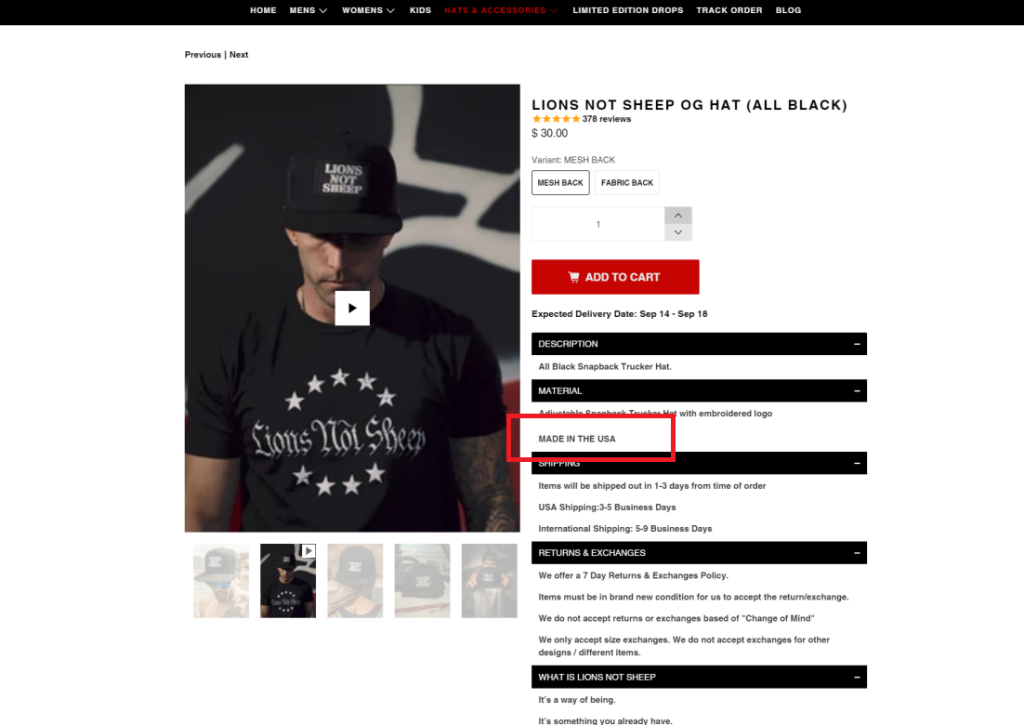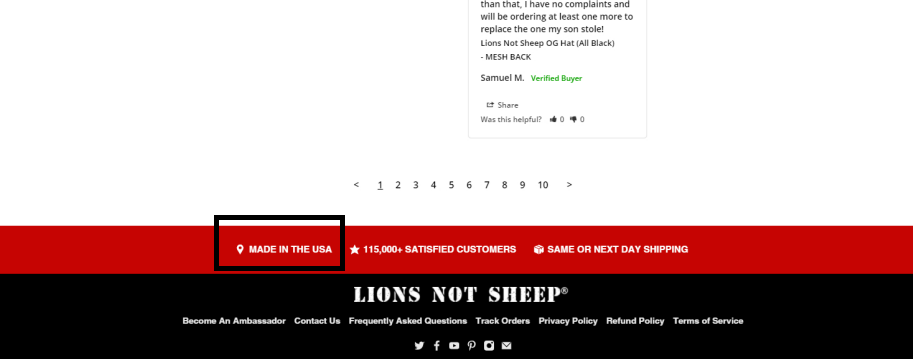Following the Federal Trade Commission’s (FTC) complaint filed in May 2022, the agency voted 5-0 to approve a fine of $211,335 for the apparel brand Lions Not Sheep, for falsely labeling their clothing as made in the United States. The fashion brand owner Sean Whalen was also personally named in the complaint, which comes as alarming news to fashion brand owners within the United States, who do not want to run afoul of US product labeling requirements.
Lions Not Sheep follows a common business practice for start up and small fashion businesses of sourcing blank base garments from overseas manufacturers and relabeling them, printing them, or embroidering them in the United States. It’s very important to note that this is process can be completed in a legal and compliant framework. However, if special care and attention is not observed, your brand could easily fall into incorrect labeling practices and you and your brand could also be found liable.

The most important thing in apparel labeling
The rules for apparel labeling all boil down to a single key concept; transparency. It is the responsibility of your brand to not mislead customers with regards to the product you are selling them. This goes for the material it’s made of, the brand that is selling it, and the country where the products are being produced. It also extends to how you market your products and the claims you make about the product. The Federal Trade Commission exists to protect end consumers from being mislead or being treated unfairly in commerce.
How Sean Whalen & Lions Not Sheep Engaged in “Unfair acts… affecting commerce”
It’s important to understand that the core issue at hand is not that the fashion brand relabeled apparel to their own brand, it’s that they did it in a way that violates United States Federal legislation on apparel labeling. Industry insiders know it is common practice for apparel brands to use blank apparel products as part of their supply chain and simply relabel them to be their brand. But when doing so, it’s now more important that ever that they do so with care.
The brand, Lions Not Sheep, claimed their products were “made in the USA,” “made in America,” and “100% American Made,” when they are not. The FTC closely monitors these types of claims and provides strict criteria for when “made in the USA” claims can be made. The FTC considers these types claims to be unqualified claims, and products that make these unqualified claims must have substantially all of the product and it’s materials created within the United States.
But the story gets even weirder…
When Sean Whalen, the brand’s CEO, took to social media to defend the brand’s illegal approach to product labeling. In a sense, doubling down on improper product labeling by also directly marketing that products clearly made in China can be represented as “MADE IN AMERICA.”

You have to remember, that the FTC not only cares about the information that is presented as part of the product itself, it also overseas about how your brand markets the product online, in email, over the phone, etc.
Within the FTC filing, the FTC also presented pictures of Lions Not Sheep website and product pages where the brand proudly claims “MADE IN THE USA” for a hat that was not fully made in the USA.

The brand also makes a sweeping “MADE IN THE USA” claim near the footer on their website. Brands should exercise caution in claiming made in the usa, if all of their products and offerings are not made in the usa. It’s important to clearly qualify these types of statements and ensure you are clearly indicating what is being done in the USA and what is not.

Here Is The Only Circumstance When You Can Use An Unqualified “MADE IN THE USA” In Your Apparel Tags And Marketing
If you want the tag of your garments to proudly declare, “made in the usa” you must make sure the t shirts, hoodies, or hats you are using are also made entirely in the USA. You cannot use a blank garment that is made in China, Honduras, etc, tear out it’s tag, then claim it’s made in the USA, even if you are adding prints, embroidery, etc to the garments within the USA.
If you are using blank garments from outside the United States, you must make the country of origin obvious and clear to the end consumer. If some of the manufacturing work for your products is being done within the United States, you are allowed to clearly indicate the work that is being done, in addition to disclosing the initial country of origin.
What The FTC’s Actions Demonstrate And What It Means For Your Brand
The recent action and large fine imposed against Lions Not Sheep sends a clear message to apparel brand owners that they better pay careful attention to how they represent, market, and label their apparel products.
While we don’t expect the FTC to hire an army of lawyers to investigate every brand, their recent actions clearly demonstrates that they are paying attention to product labeling that brands are doing and they are not shy about enforcing apparel labeling laws.
What should I do if I am not properly labeling my apparel products right now?
While we are not lawyers, and you should not consider this legal advice, we recommend to start labeling and marketing your apparel products correctly as soon as possible. It’s easy to comply with United States apparel labeling requirements and there are just no excuses for misleading your customers.

